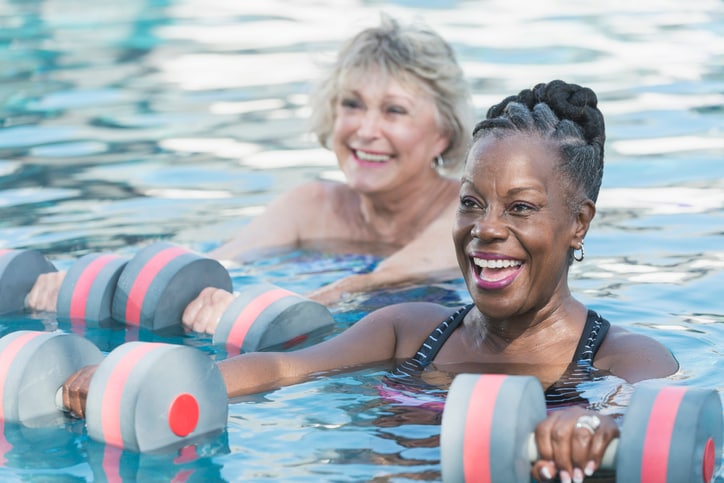If you are hiring a home health aide (HHA) for yourself or a loved one, you probably have many questions and concerns. You want to be sure the aide is a good match for you personally, is trustworthy and conducts themselves in a professional manner. But you also likely have specific questions about what tasks aides can help with and what home health aides are not allowed to do.
“Home health aides should not perform tasks outside their scope of practice,” says Tina Sadarangani, a board certified nurse practitioner, assistant professor at New York University and creator of the CareMobi app. Usually a home health aide’s scope of practice includes helping someone with the tasks of daily living, such as feeding, grooming and mobility. Tasks outside of these areas will depend partly on the service agreement that you and the aide have made, as well as state and local regulations.
Here, we’ll go over home health aide dos and don’ts, as well as share expert tips on how to handle any communication issues that might come up as you share your needs and expectations with your aide.
What are standard job duties for a home health aide?
Find a home health aide job
The main job of a home health aide is to help someone with the activities of daily living (ADLs), says Jennifer Drake, an account executive at the United Disabilities Services Foundation, a non-profit organization that helps seniors and others with disabilities.
The six main activities of daily living are:
- Feeding, which may involve meal preparation and direct feeding.
- Ambulating, which involves helping someone move from one location to another, including transferring in and out of bed.
- Dressing and undressing.
- Personal hygiene, which may involve bathing, hair care, dental hygiene and nail care.
- Continence, which involves both bladder and bowel functioning.
- Toileting, which may involve getting to the toilet, using it properly and cleaning up after use.
With those guidelines in mind, Joy Loverde, author of The Complete Eldercare Planner, 4th Edition, says it may be reasonable to expect the following tasks from your home health aide:
- Preparing meals according to special dietary restrictions.
- Helping to maintain a safe living environment.
- Accompanying you to medical appointments.
- Assistance with grocery shopping or other errands.
- Medication reminders and medical appointment tracking.
- Reporting any mental or physical concerns to family members.
- Providing companionship and emotional support.
- Engaging in social interactions.
Home health aides may also help with tasks like light housekeeping, such as doing laundry, dusting the home, mopping and vacuuming, says Drake. “They may also be able to provide safety supervision for those who may be a fall risk or elopement (wandering outside) risk and companionship for those that may be lonely or depressed,” she adds.
Join Care for free
What are home health aides not allowed to do?
While there are many things that home health aides can do to help you or a loved one during their day, there are several things that are considered outside of a home health aide’s scope of practice. Each state has specific rules in place for caregivers, so you can check your state department of health regulations for more information. In general, home health aides cannot perform medical-related procedures or do anything pertaining to financial matters.
Here’s what our experts shared about what home health aides are not allowed to do.
Administer medication
It’s fine for home health aides to remind clients that it’s time to take medications and which medications to take. But in most cases, they can’t directly administer the medications. “The ability of HHAs to administer medications depends on state regulations and their specific training and certification,” Loverde says.
Provide medical services
It’s not appropriate for home health aides to provide medical services to clients, including skilled services like physical and occupational therapy, Drake notes. Sadarangani says that aides shouldn’t generally perform tasks such as administering injections or providing other medical treatment unless they are properly trained or supervised. “Doing so can pose risks to the client’s health and safety,” she adds.
Provide transportation
Home health aides can accompany you to medical appointments or on errands. But in most cases, they shouldn’t be the ones to provide the transportation. Aides “should not provide transportation without proper authorization and insurance coverage, as this can lead to liability issues in case of accidents or injuries,” Sadarangani explains.
Manage mail
Home health aides can bring their client’s mail into their homes, but they shouldn’t open, read or manage it, according to Loverde. “Opening someone else’s mail is against the law and considered stealing,” she says. “This request puts the home health aide’s job in jeopardy.”
Manage finances
Loverde recommends strongly against having a home health aide manage your financial affairs, even light bookkeeping. “Exposure to clients’ financial affairs leaves home health aides vulnerable to accusations of theft,” she explains. Sadarangani agrees, noting that home health aides, “should not handle financial matters or personal affairs for clients, as this can raise concerns about potential exploitation or abuse.”
What extra tasks are reasonable to ask a home health aide to do?
Are there tasks outside the basic tasks of daily living it’s appropriate for a home health aide to do? Sadarangani says that besides the basics like grocery shopping or picking up prescriptions, home health aides can engage in the following activities with their clients:
- Activities to provide mental stimulation and social interaction, such as playing games.
- Assisting with light exercise, like going for walks or simple rehabilitation exercise recommended by healthcare professionals.
- Offering support with household organization and basic straightening up.
Additionally, Drake says that it can be appropriate for home health aides to take you or your loved one on outings like getting hair done or going out for a meal.
Home health aides can also help you connect with your loved ones when they aren’t there. “Long-distance family members can expect home health aides to be technology savvy and know how to conduct and participate in virtual family gatherings when invited,” Loverde describes.
How to know if you’re asking too much
It’s acceptable to ask your home health aide to help you with tasks and activities as long as they are within their general scope of practice. After all, that’s what your aide is there for — to help you! But is there a point when you have overstepped and are asking too much?
Sometimes your aide will tell you directly if they are overworked or if they are unable to perform a specific task and what the reasons are. If not, you may be able to see signs that your aide is overburdened. According to Sadarangani, signs that you may be asking to much include:
- Your aide shows signs that they are overwhelmed, such as forgetting things or struggling with regular duties.
- Your aide’s quality of care decreases, including not completing daily tasks.
- You or your family member see signs of stress or exhaustion in your aide.
Outlining expectations for a home health aide
“It is critical to communicate needs to the home health aide,” Sadarangani emphasizes. One way to safeguard against overstepping with your home health aide is to make sure that you and the home health aide have a clear understanding of what the agreed-upon scope of work is for the job, she explains.
“It helps to write down and clearly outline expectations and preferences during initial meetings or orientations,” she says. This is often accomplished with a contract, but additional communication should take place as well. It’s also helpful to provide written instructions for care plans, which can be referenced periodically during care. This may include instructions for medications management or a list of daily tasks you expect the home health aide to complete.
The bottom line
Home health aides serve a specific role in senior health care. They are there to help with activities of daily living, such as dressing and eating, but they may not be the best fit for someone with more complex medical needs.
Even once you and your home health aide have a clear understanding of which tasks will be performed and which will not, misunderstandings are bound to come up from time to time. This may happen if you’ve recently added new items to the “to do list,” or if you are asking the aide to change the way in which they are performing a specific task.
The key is to maintain open communication throughout your relationship with your aide, Sadarangani says. This way, anything that comes up can be addressed right away. “Regularly check in with the aide to ensure that both parties are comfortable with the arrangement and address any issues promptly and respectfully,” Sadarangani advises.

